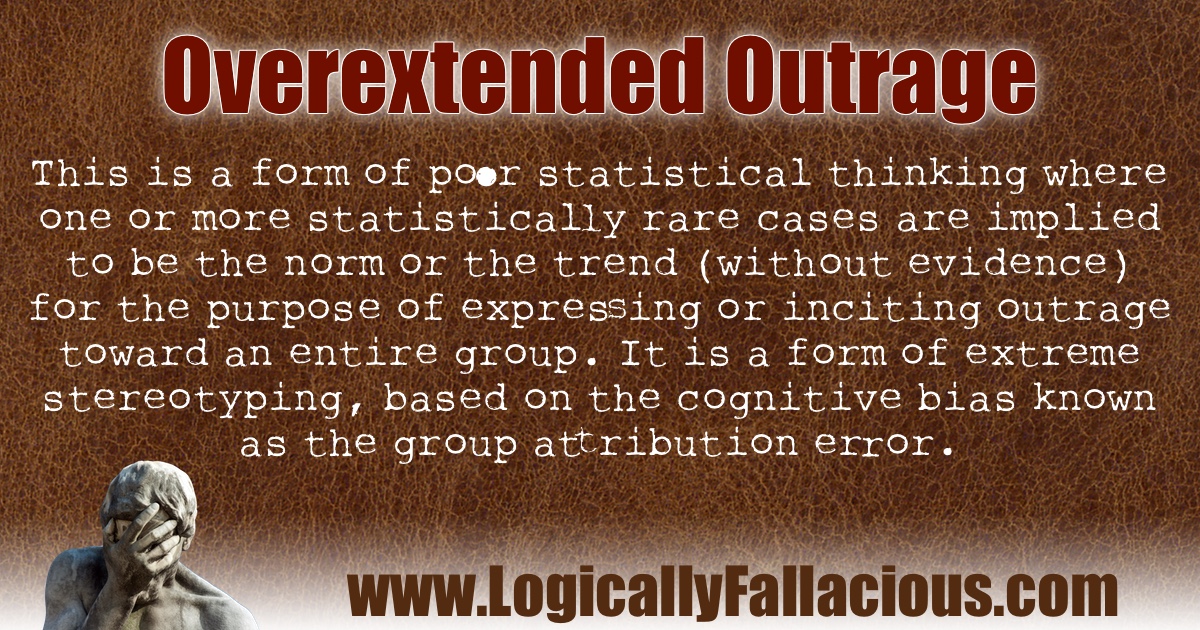(also known as: overextended moral outrage, overextended political outrage)
Description: This is a form of poor statistical thinking where one or more statistically rare cases are implied to be the norm or the trend (without evidence) for the purpose of expressing or inciting outrage toward an entire group. It is a form of extreme stereotyping (the fallacy), based on the cognitive bias known as the group attribution error.
Logical Form:
Person 1 does something bad.
Person 1 is a member of group X.
Outrage is expressed towards group X.
Example #1:
FAUX News runs a story about an illegal immigrant who committed a horrible crime. The commentators talk about this case for weeks, expressing outrage about the serious danger illegal immigrants pose to the good people of the United States.
Explanation: Violent crime by illegal immigrants is rarer than violent crime committed by U.S. citizens [1]. However, if the narrative a media outlet is trying to sell is that illegal immigrants are dangerous, then they can influence public opinion by inferring that one example of such violence is characteristic of the group. Expressing outrage is a way to make the influence even more effective.
Example #2:
The Huffaluf Post runs a story about a Republican who assaulted a Muslim woman and told her to "go back where she came from." The story is shared millions of times and picked up by other liberal media outlets. Liberals are discussing this story on social media saying how outraged they are at Republicans for their hatred of Muslims.
Explanation: People and the media (biased media) tend to associate a physical or social identity to the perpetrator of a crime for the purpose of damaging the group's public perception. Why a "Republican" man? How many Republicans are assaulting Muslim women? How many Democrats are? The data are ignored for the benefit of the narrative being sold.
Exception: There is no exception. If it is "overextended," then the problem is being exaggerated, and a group of people is unfairly demonized.
Tip: Next time you read about a story that makes you feel outraged, direct your outrage to the individuals directly involved in the story. Don't demonize an entire physical or social identity.

References:
This is an original logical fallacy named by the author.
1 Adelman, R., Reid, L. W., Markle, G., Weiss, S., & Jaret, C. (2017). Urban crime rates and the changing face of immigration: Evidence across four decades. Journal of Ethnicity in Criminal Justice, 15(1), 52–77. https://doi.org/10.1080/15377938.2016.1261057
Listen to the Dr. Bo Show!
Hello! I am social psychologist and author, Bo Bennett. In this podcast, I take a critical thinking-, reason-, and science-based approach to issues that matter. As of January 2020, this podcast is a collection of topics related to all of my books. Subscribe today and enjoy!

